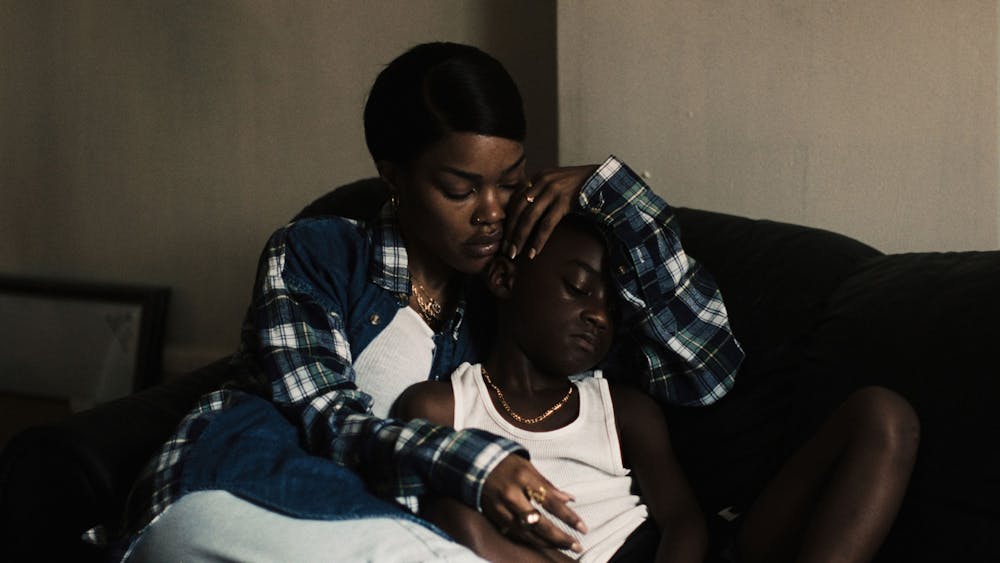It’s never too early to plan ahead: while some moviegoers are busy concerning themselves with what might take home the gold at the 2023 Oscars, others looked to this year’s Sundance Film Festival to provide an early glimpse at the films to watch for next year’s upcoming awards season. There may not be any that made quite as many waves as the Grand Jury Prize - Dramatic winner “A Thousand and One,” whose millenium-spanning story announces writer-director A.V. Rockwell as a talent to watch.
The film, which serves as Rockwell’s feature-length debut, follows Inez (Teyana Taylor), who kidnaps her 6-year-old son Terry (played by three different actors at three different ages) from the foster care system, set on raising him herself. We follow Inez and Terry through a variety of systemic and personal hardships, focusing on the shifting landscape of New York City in the ‘90s and early 2000s.
It’s almost difficult to begin talking about the effectiveness of this film, simply because almost every single element is working at such a high level. The directing, writing, performances, cinematography and score are all fantastic: Rockwell’s debut feels more nuanced and skilled than most directors’ best works, a tribute to her ability as both a writer and director.
Taylor’s lead performance in particular is at all times equally captivating, heartbreaking and empowering. Given that the story spans a little over ten years, we see Inez — and in turn, Taylor’s performance — evolve, demonstrating the toll that a flawed system can take on even the most unapologetic individuals.
Taylor reminds us of what creates performances we remember for years to come: we forget that the character we are watching on screen is actually a character and not a real person. Taylor’s performance is so lived-in that it’s hard to view Inez as anything but real. Every steadfast affirmation and heartbreaking revelation is grounded within Taylor’s expert portrayal.
And, luckily, Taylor is not alone on this journey: William Catlett is brilliant as reluctant father figure Lucky and, although each performer of Terry does great in their own right, it’s Josiah Cross as the eldest version of Terry that really takes the cake. Years of hardship and lack of agency spill over through Cross, making the third act stand out in what is already a standout film.
Even with a strong anchor of Taylor’s performance, a story as ambitious as “A Thousand and One” could easily falter without a skilled captain at the helm. Luckily, Rockwell’s direction helps the journey of the story feel like smooth sailing, navigating the story’s darker storms with confidence and tact. It would be easy for any director to get lost at sea attempting to navigate a story who deals with the multitude of topics that “A Thousand and One” does, but Rockwell charts these waters with a self-assured ease.
The film’s scope, tracking Terry’s childhood from 6 to 17 years old, provides it with a literary feel. The story at times feels like something that’s pulled from some sort of fable or legend with each character having strong trajectories and identifiable flaws.
This is aided by a cultivation of other effective elements that make up the film. Cinematographer Eric Yue makes careful use of static shots among the handheld, creating subtle moments of emphasis while also using a variety of cameras in the establishing shots to further the idea of New York City as an ever-evolving character. Gary Gunn’s orchestral score is at times heartwrenching and fantastical, serving to heighten the drama and emphasize the story’s novel-like nature.
Considering all of these elements in combined form, “A Thousand and One” presents a subtle, empathetic, nearly tragic, but ultimately uplifting story of a mom trying to do right by her son by providing him with opportunities never afforded to her. The literary nature of the storytelling almost casts a cloud of this sense of magical realism; there’s a strange sense coming from the film that this almost couldn’t happen. But taking the lesson from the characters in the film, it’s up to us to resist that feeling and create the change so that it can.
John Scott is the editor-in-chief at the Daily Lobo. He can be contacted at editorinchief@dailylobo.com or on Twitter @JohnSnott
Get content from The Daily Lobo delivered to your inbox






